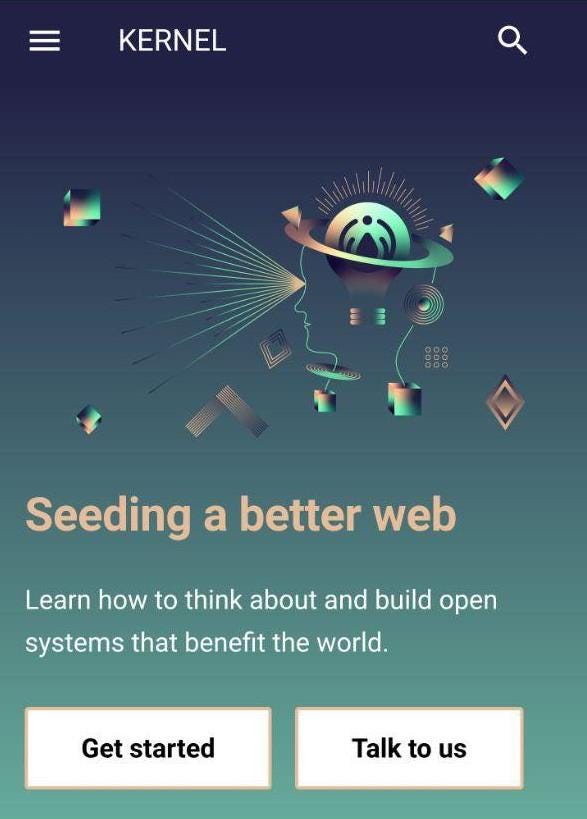The organizers of the Apollo hackathon take a long view. Years. Into the next decade. This macro vision distinguishes the initiative from other hackathons. A long view provides an encompassing context which is creatively stimulating and strategic for both the hacker teams and the larger community.
In a typical hackathon the organizers setup digital infrastructure to streamline communication and schedule weekly events, meetings, mentor hours, and milestones. This is no small feat. In the summer we joined an ETHGlobal hackathon that included 470 hackers in 134 teams from 50 countries across 19 time zones. You can imagine how the coordination is a round the clock job.
Apollo expressly limited the number of participants to 75 teams which narrowed down to 20 finalists. This stimulated interaction and bonding in order to nurture community growth and longevity.
Each week for six weeks there was a Fireside Chat. It required preparatory homework. Hackers had to peruse modules in a syllabus created in a previous hackathon called Kernel. The content included 8 modules of text, video, and linked media.
Hacking – when it’s going well – is an immersive experience where you’re totally focused. When you’re in the zone the LAST thing you wanna do is stop working and read cloud level spacey spiritual stuff!
But that was the assignment and if you skipped it you were at a disadvantage. In the Fireside you had to come out of your rational rabbit hole and integrate. This was engineered using Airmeet software which has virtual tables that, like a cafe, keep groups small and convivial. Events were scheduled at specific moments but deliberately started late so people had time, and made time, to sit around and socialize. It worked; in those conversations we developed supportive and lasting relationships.
When a Fireside commences it’s like virtual curtains of a theater opening. The space is transformed into a presentation hall where speakers come on stage. The MC¹ makes announcements and introductions. There’s always a special guest who relates to the material in that week’s syllabus module. Usually a slide deck or desktop is shared.
The syllabus is what really set Apollo apart. The content is exceptional. Its thoughtful, inspiring, gently coaxing language is a gratifying read. The topics range from the pragmatic to self-actualization.
There’s a dichotomy in the syllabus. On the one hand, its author² is a techie who’s totally up to speed on blockchain and cryptocurrency. But fundamental principles get woven in, like: what is value, meaning, money, freedom, governance, and giving. The first section discusses trust as the breakthrough innovation of cryptocurrency. It elucidates how peer-to-peer transactions are verified using a universal language (math) in a distributed trustless consensus. Yeah!
It’s a trap. The next section delves into how “The quality of listening determines the quality of speaking” and asks “What is the truth outside yourself?” and “How could you build open tools that encourage people to explore such ideas and connect in truly meaningful ways?”.
Those extreme perspective shifts turned Apollo into a formative and memorable experience for all. We’re grateful that we could participate.
Apollo was a group effort and many contributed:
It was a Gitcoin project. The coordinators³ utilized Gitcoin infrastructure.
The hackathon was sponsored by Protocol Labs, timed to coincide with its Filecoin mainnet launch.
Every week there were mentor sessions with experts and cofounders from key web3 infrastructure companies. We gained insights from our mentors⁴ that we’ll explain in a follow-up post.
Participants from the previous Kernel hackathon, known as Fellows, were also hanging around, providing advice, contributing to feedback sessions, being supportive.⁵
Evidently, the organizers’ long view is effective. They’re successfully building out a community sustained by a fostering economy. One that pays it forward.
Apollo was a cycle. Its founders are preparing for the next generation: in January they’ll host a Kernel Block 2 hackathon. If you have any innovative ideas we urge you to apply to participate.⁶ In any case please help superspread the word.
Footnotes
Vivek Singh, COO of Gitcoin, was the maître d’ of the proceedings.
Andy Tudhope authored the syllabus. Like community code, it’s open to the public. Try reading one section at the end of every workday.
Sachin Mittal deftly coordinated the infra and interaction.
Our pitch mentors were Mike Goelzer from Protocol Labs and Carson Farmer from Textile. In a session Brett Shear and Harrison Hines from Fleek chimed in.
Milensu Kapaipi, a Kernel Fellow who works at the UN in Rome, provided insider advice in a user feedback interview.
Kernel Block 2 applications close Nov 15th. If you’re going to apply, let us know in advance!
We chronicled our weekly progress in a ClimateDataPool sub-blog.




Thanks for your kind words and the summary, Kit. It's been a pleasure to get to know you through the program and the beauty is that this is just the beginning! Can't wait to follow the ClimateDataPool progress from here. Stay connected, we look forward to hearing from you + introducing you to the growing KERNEL family from here.
Thanks for your amazing words Kit 🌈 One of my fav substacks cuz of what you guys are doing.